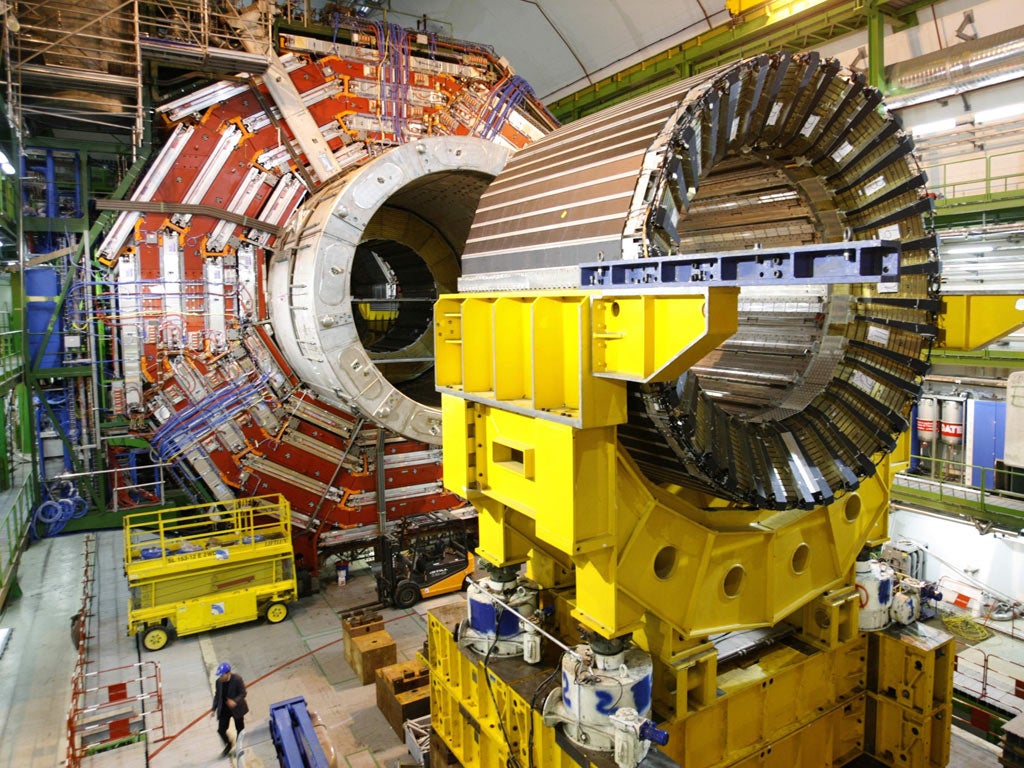No confirmation of 'God particle' discovery

European nuclear research scientists say they are close to discovering the elusive Higgs boson, the "God particle" that confers mass on matter and is thought to be one of the building blocks to the universe. But they are still some way from confirming the existence of a sub-atomic particle that is one of the cornerstones of modern physics.
Despite excited reports yesterday morning on the BBC that the particle has been "glimpsed", the Cern laboratory in Geneva yesterday merely confirmed that measurements by its £5bn Large Hadron Collider have come closer than previous searches to detecting the sub-atomic particle whose existence was first hypothesised in the 1960s.
Scientists said they have eliminated 95 per cent of the energy range where the Higgs may have been hiding, but are not yet ready to exclude the possibility that what they have detected is merely background noise rather than the real thing. They said that final, definite proof will now have to wait until 2012. Professor Rolf-Dieter Heuer, head of Cern, urged: "Please be prudent. We have not found it yet. Stay tuned for next year."
Professor Themis Bowcock, head of particle physics at the University of Liverpool, said: "If the Higgs observation is confirmed, this really will be one of the discoveries of the century." Dr Stephen Haywood, head of the Atlas Group at the STFC Rutherford Appleton Laboratory, said: "This is what many of us have been working towards for 20 years. This is just the start."
The Large Hadron Collider accelerates sub-atomic particles called hadrons at 99.9999991 per cent of the speed of light. Sensitive detectors at the sites where the hadrons collide are then designed to monitor the tell-tale signs of a Higgs particle. Unfortunately, however, there is a lot of "noise" coming from other particles and collisions that can mask its existence .
Join our commenting forum
Join thought-provoking conversations, follow other Independent readers and see their replies
Comments